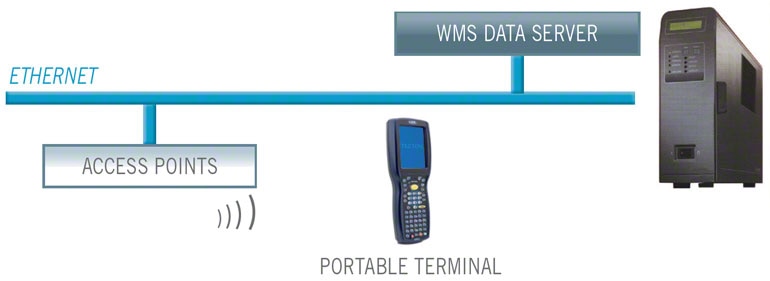When performing tasks in a RFID run warehouse controlled by the WMS, one very important aspect is the communication between the management system and the operators carrying out the orders assigned to them and from whom the system also receives information, such as, the information on receipt of an item. Radiofrequency identification (RFID) is one way to communicate in a warehouse.
Operators must be given instructions for tasks and the order in which these are to be carried out. This can be done verbally, in a written document (such as a delivery note), or through radiofrequency terminals (RF). The use of radiofrequency technology has many advantages:
- There is no need for paper, since the orders are sent to the computerized devices that operators carry with them or are fixed to the handling machines. Communication between the IT server and these devices is wireless, using radio waves emitted and received by the aerial equipment strategically positioned around the warehouse.
- Using the terminal’s keyboard (voice command option is also available), personnel in the warehouse confirm each operation and immediately receive a new order. The system is very fast and avoids the need for operators to ask about or ask for each action, as they only need to carry out the orders. The result is very high performance and almost error-free operations.

The RF devices communicate the orders transmitted by the WMS to the operators
- The use of radiofrequency means working in real-time. In other words, the management system automatically knows at all times where the goods are, what quantity there is, under what circumstances or in which processes, etc.
To be able to work with radiofrequency, both goods and locations must be encoded, allowing the automatic confirmation of data. This process becomes faster and safer if we implement the right WMS.
